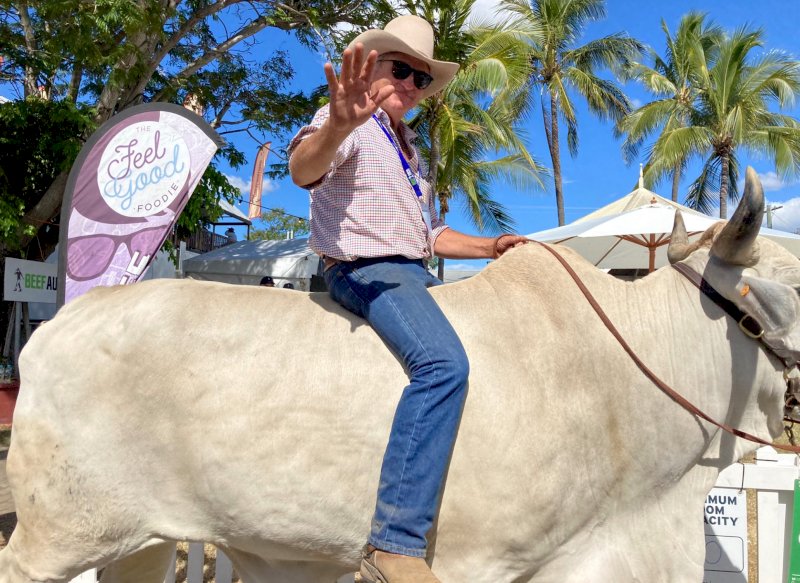Supplying the Chain
- By: "Farm Tender" News
- Farm Tender, DelayPay & Farm Inputs
- May 13, 2021
- 417 views
- Share

Extracted from the Farm Tender weekly Newsletter - Sign up and get the email every Wednesday morning before 6 am. www.farmtender.com.au
By Dwain Duxson
I thought I would put this picture from Beef Week up. It finished on the weekend. Many people are saying it's the best Ag event they have attended. Now we all have to wait another three years for the next one...
On with it now....
I heard this week that many Australian Ag Manufactures have delivery lead times out to 2022 and some beyond. Such is the demand for new Ag Machinery and Equipment. It's a similar story with International ones, with one Farmer telling me he booked a Green Tractor in April, and the expected delivery date is January 2022.
These lead times seem to be getting longer and longer, perhaps it's a covid thing, or the demand has just caught everyone unawares.
Another issue is sourcing components and parts. Some Manufacturers of Ag Products here in Australia tell us it's slowing down their businesses when they could be doing the opposite.
This all got me thinking. Do you ever take much notice of whole supply chains? No, me neither. But I did the other day, and when you think about it, they make the world go round.
The importance of everyone doing their bit is vital. Otherwise, it all breaks down. I once studied the Wool supply chain from Grower to Consumer, and there are something like eight changes of ownership along the way.
Many have tried to vertically integrate the process and failed, and you can see why, although the Kiwi's seem to have nailed it.
Luckily here in Australia, our Agriculture domestic supply chains stood up during the pandemic, and many didn't miss a beat.
Some supply chains are so inefficient or unbalanced, where only a certain few make most of the margin. Making them more efficient is what technology can do, but they are hard to change because of vested interests at each level in the chain. Cutting out the middle man is much harder than everyone thinks.
The word "price takers" has always been associated with the producer (the Farmer). It's the start point where most of the work is done, and the risk is taken.
But there is still plenty of risk and complexity post Farm gate. Take the meat industry, for example. The complexity in finding markets for each cut or product produced from an animal is hard, let alone the logistics of getting it somewhere and getting paid. You are reliant on so many others to do the right thing. You can see why it's a case of, you produce it, you sell it, you transport it, you process it, you distribute it, you butcher it, and you buy it. Each part of the chain has its own uniqueness, and then you get into things like different forms of finance for each.
That's why Roger Fletcher is to be admired.
I talked to a Farmer from the North East of Victoria yesterday, explaining how his grandfather used to cut timber in those steep hills and transport it to Melbourne himself. The logistics and complexity of that all those years ago would have been immense. Imagine the turnaround time.
Supply chains really do make the world go round.









Share Ag News Via